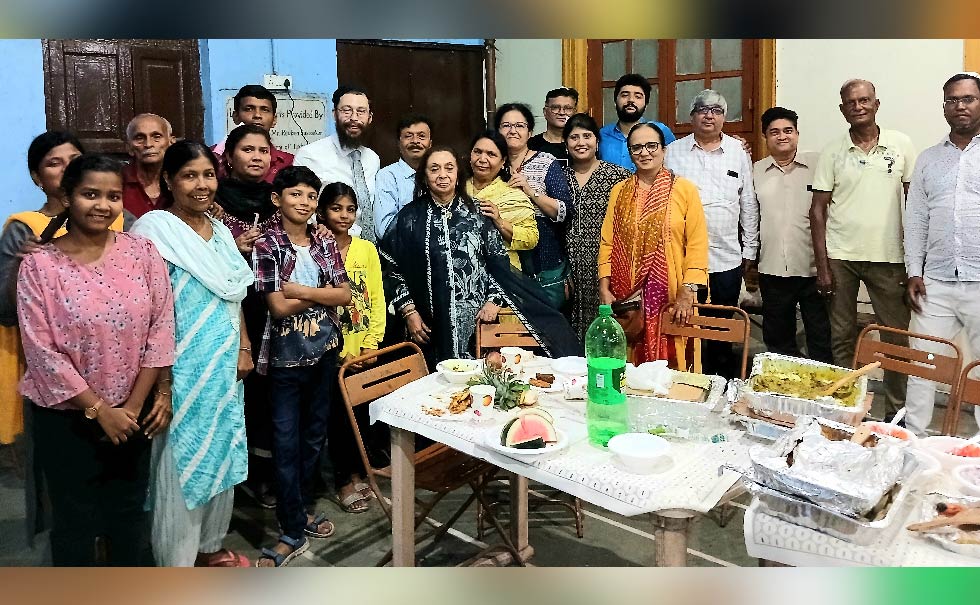Gardens and Meadows
In everything there are powerful metaphors that allow us to perceive truths and concepts related to our lives in general:
When we perceive a beautiful garden with rows of plants set against their type in an organized fashion, we are able to perceive the mind of the gardener and to enjoy the human ability to bring order to chaos – from this methodology we are able to raise crops in a manner that feed many people and maximum our land for yield and also for aesthetic beauty. Those weeds that are unwanted are removed and those that we desire flourish under our diligence, through human power we water, irrigate and manage the plot to bring our intentions to reality.
The converse is true with the field that left to fallow: in the absence of man pruning, mowing and caring for the land; a new phenomenon takes place, those weeds we perhaps once worked to be rid of, now burst forth in wildflowers, the field becomes a meadow and a natural beauty is allowed to return: the contrast between different colours and flora is also at times mesmerizing and captivating. Aside from the flora, the animals return; birds, rodents and insects that would otherwise be considered pests for agriculture now thrive unabated by human plans to harvest and plunder the riches of the land for themselves alone.
In human society, often we desire for homogeneity, for all things to be alike and similar enough to have shared values – in religion and politics this can often be a violent tendency to prune worldviews that differ from our own, for the desire for world to be an ordered and irrigated field that delivers the crop of thought we value and removes the weeds of those ideas and thought movements that we see as detrimental to this process. In the democratic ideal, we celebrate diversity and difference if they promise to not devour each other, that a certain healthy respect is given to the general ecosystem of human living in a peaceful, but stressed coexistence – that being said, a world full of only the same colour flower would be far less beautiful.
I began writing this in Mumbai, transferring from the international to the domestic airport on the free but crowded transit bus and attempting to write is at times a haphazard experience, the structure of Mumbai city is one of intense disparity and at times chaos, yet many faiths, colours, creeds, and nationalities are present here living as one. Naturally we become locked in the intense traffic of the city; cars, taxis, rickshaws, cows, and motorbikes squeezing up close to each other and honking their horns in a cacophony of noise, scent, colours, and heat. Mumbai is a metropolis of lives and stories locked into each other in intense interaction.
I next journeyed to the wide expanses of rural Gujarat, vast miles of fields of onions and cotton between small built-up villages where people, cows and dogs live side by side in a traditional style. As we drove for hours between the locations it was hard not to appreciate how much of the land here is given over to agricultural work, ancient family holdings of ancestral properties still largely harvested and tended by hand. We become rapidly accustomed to the supermarket and the local produce markets that serve to bring such convenience to our lives, here aside from the towns a much smaller trade is undertaken with vegetables with motorbikes and rickshaws, may people live directly off the land in small straw and basic housing, when I arrive at the industrial locations the change is sharp and immediate with restaurants and small cafes set up to serve the workers and the inevitable bus stop and chai stop that defines there being a location to visit at all. Where human traffic is found, the fields give way to roads and factories, businesses, and small infrastructure. At night I sat near the fire at one of the local stops and borrowed a guitar from a local musician sharing songs by a fan assisted charcoal burner, I shared songs from home and some instrumental pieces and delighted in the special power of music that it can connect people beyond language, culture, religion, and social background.
My next destination was the green and tropical state of Tamil Nadu, here the speed of life was even slower and I visited many factories that existed down long winding roads of agricultural farms and orchards, with my family we visited the local flower market and saw the variety flora that is used here for decorative and also for religious purposes, in much of Tamil Nadu the factories I visit are in extremely rural areas and I passed by villages and settlements that seem never to have changed in decades, except for the presence of motorcycles and some electrical wiring one begins to feel as if the industrial revolution never occurred in these places. As I drive through fields of bananas, coconuts, sugarcane, and rice paddy it is possible to see people farming using ancient methods that do not require machinery, ploughs still pulled by oxen, harvesting by hand using sickle and long machete like knives. One thing that is immediately clear from visiting much of India is that as one becomes further away from the cities the style of life, dress and observed culture becomes less western and more immediately perceivable as traditionally “Indian”.
So much of our own innate culture has been greatly modified by our worldwide experience, to the point that our national dress is now indicative of wherever our families were dispersed to, rather than the originally traditional Israelite cultural dress. Our tunes and melodies for our various songs and prayers are based equally on this fact, our culture reflects our people’s journey through the diaspora, although our words and intentions are that of our fathers from ancient Judea. This reality has become so normalised that should a Jew dress in a more traditional clothing (including turban) and perform prayers with prostrations it would be considered in most Synagogues strange or even disrespectful!
Our people have a tendency towards enclaves, ghettos, neighbourhoods and cities – it is there within these gardens of humanity we plant and raise our children, build our communities and become part of the economic and intellectual drive towards betterment, prosperity, affluence and modernization, it is less often that we find ourselves in the wild: our lives as Jews require Kosher food, the Synagogue, the Mikveh, access to our books and our beloved Chachamim to voice our questions both philosophical and Halachic and receive answers and guidance.
Within the world of our Torah, our first book of Mishnah describes to us the laws relating to fields, trees and agriculture: one can argue that from the onset we bidden to organize and better our world to produce the best of it, to ensure that tithes are taken and the land respected. As much as this is true and the results of our peoples collective journey through the epicentres of human civilization have produced both fantastic results and also terrible calamities, we have been present for the rise and fall of civilizations, cities, towns, kings, empires and caliphates; the path of the mystic and our prophets is often described in different terms: they leave the comforts of the material society and seek out places of solace and nature to commune with Hashem, our God. Moses experiences his vision of the Burning Bush in the wilderness, Abraham has his visitation from angels at the mouth of his tent in the desert, Yaakov fights with the angel in a field and later in the times of the Tannaim, Rabbi Shimon Bar Yochai and his son seclude themselves in a cave and eat carobs to survive; in the process gaining tremendous spiritual clarity. Later in the works of Chassidic thought, Rebbe Nachman of Breslov would create a systematic practice of regular isolation in nature to speak to Hashem in his own words and pour out his soul to his Creator (in a practice called Hitbodedot or “self-seclusion”) – as much as the need to live amongst civilization and interact with others is necessary, seemingly the spiritual path demands that break from this to encounter the stillness and quiet without the presence of others.
This idea is also very much reflected in our agricultural laws, as we are commanded to take tithes and separate the various cultivated plants (lest they become K’layim cross pollinated produce) we are also commanded to allow our hard worked fields to return to nature every seven years in the cycle of Shemittah and Yovel: ultimately no matter how much power man wields over nature, the earth and all its fruits belong to the Creator alone, even though he blesses us to be allowed to work it, eventually man returns to dust and all cultivation falls back to the wild, erratic and free growth of itself: incredibly, it is this very fallowing that allows nutrients to return to the soil and limits the possibility of overworking the soil, by letting go we actually ensure our ability to grow again.
Our Torah is thus one of both Gardens and Meadows, of cities and wilderness – both experiences are spiritually necessary, to perceive the great creativity and capacity of the human spirit and intellect in its war against the forces of nature to survive and thrive in its environment, and the need to depart from that which has been constructed to encounter of the opposite: the lack of others and the unrestricted beauty and vulnerability of nature, it is no surprise that the word for God (Elohim) has the same Gematria (numerical equivalent) as the Hebrew word for “nature”, as the Rambam also writes, by looking into nature and seeing the order of life, the planets and awesomeness of the natural world we come to believe in the power and greatness of Hashem.
This short time apart from the city, from paved roads and convenience has not nearly brought me to prophesy, as in the case of our ancestors, but it has given me perhaps a new clarity; the last year living inside the concrete jungle of Manila and having travelled to many cities in the Far East for work has been a tremendous privilege and has allowed me to connect to many people and cultures, for all of it however, I lacked this necessity of stillness, of mountains, rivers and untouched earth. It is my desire to increase my time in the wildness and my heart’s own calling towards terra incognita, to the intense feeling of the contrast between vastness and my own smallness – it is my prayer that such time will give me the correct perspective to return to my people with that spiritual perspective, to be able to communicate the greatness and lowliness of man, to celebrate states of command of nature and of being at its mercy, the lessons of both Gardens and Meadows.
Rabbi Jonathan Goldschmidt 2024 ©




